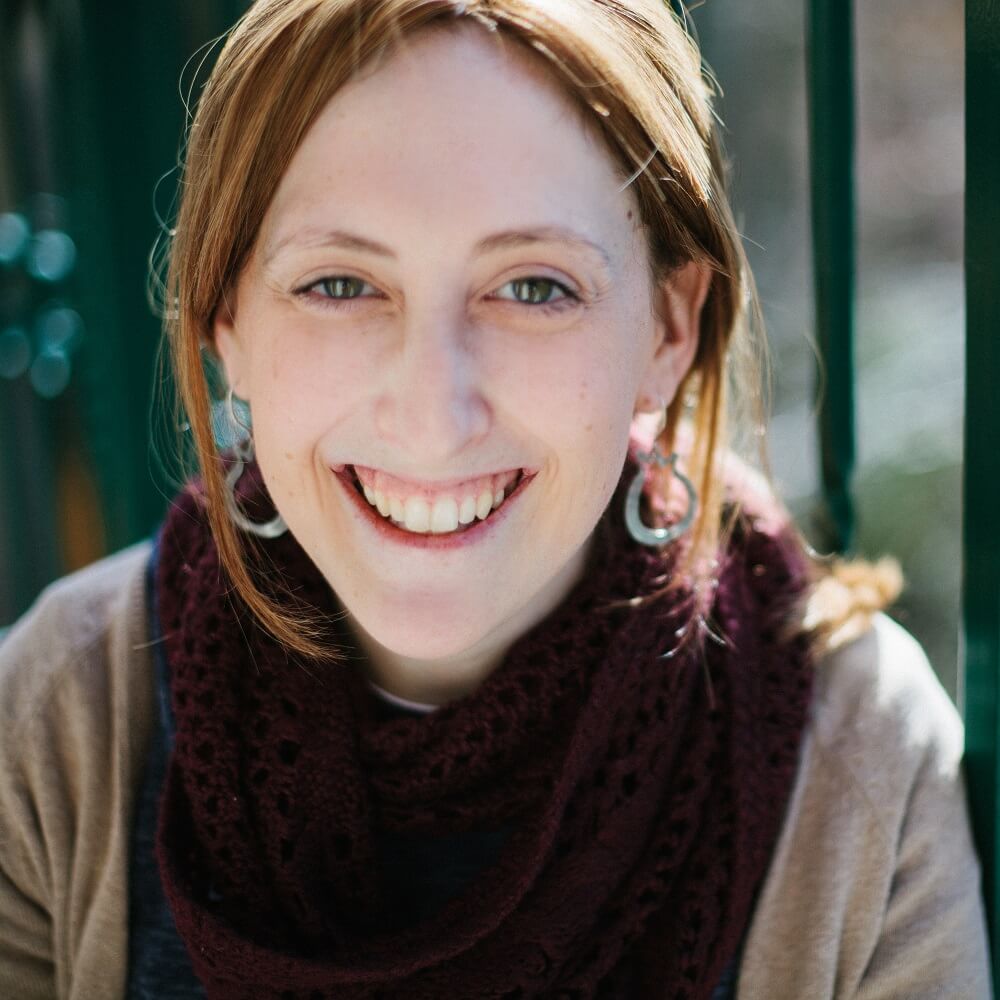Fighting Blindness
Lander College for Arts and Sciences Graduate Dr. Michelle Grunin Researches Age-Related Macular Degeneration

In the battle against the medical condition known as age-related macular degeneration (AMD), Dr. Michelle Grunin, a graduate of Lander College for Arts and Sciences (LAS) in Flatbush, is busy fighting in the trenches.
“AMD is the leading cause of blindness,” explained Dr. Grunin. “It begins to occur when a person reaches 60. We don’t know why it occurs and we don’t have a cure for it. We have an elderly population that should double by 2020. People don’t want to simply grow old, they want to grow old well and live happily.”
Grunin, who recently completed her Ph.D. at Hebrew University and is currently a postdoctoral researcher at Case Western Reserve University in Ohio, credits LAS with setting her on her career path.
Michelle, a native of Chicago, attended the Machon Bnos Yehudah seminary through the Touro College Israel Option program, before beginning at LAS. “I was pre-med,” recalled Dr. Grunin. “I come from a family of doctors and I was 19 when I finished my pre-requisites. I was warned that medical schools might not be so interested in accepting someone so young, so Dr. Robert Bressler, LAS’s chair of the biology department, encouraged me to volunteer in a research lab.”
Dr. Bressler connected her with Dr. John Lewis, a researcher in SUNY Downstate University. For the next year, Dr. Grunin worked in the lab running microbiology and genetic experiments on the vaccinia virus, the first virus used in vaccines for smallpox.
“It was my first experience with serious research and I loved it,” recounted Dr. Grunin. “When you’re a pre-med student you tend to not realize that there is more than one way to help a patient. There’s an incredible amount of work being done in so-called translational medicine, medicine developed from the lab that is then taken to the patient’s bedside. You can help millions of people. It was an entire branch of medical sciences that I never would have thought of.”
Dr. Bressler encouraged her to consider a Ph.D. instead of an M.D. “He was a real inspiration and role model for me,” said Dr. Grunin about Dr. Bressler.
During her time at LAS, Grunin helped relaunch the Science Journal of the Lander College of Arts and Sciences and worked as a physics tutor for undergraduate students. After graduating with a biology honors degree, Dr. Grunin moved to Israel to pursue a Ph.D. in human genetics at Hebrew University. She worked under Dr. Itay Chowers, the chairman of the ophthalmology department in Hadassah-Hebrew University Medical Center. Her research focused on the genetics and immunological biomarkers indicative of macular degeneration.
During her time at Hebrew University, Dr. Grunin received a bevy of honors and scholarships, including becoming a Baroness Ariane de Rothschild Woman Doctoral Fellow, a prestigious fellowship given each year to only five doctoral candidates; and scholarships from the Foundation Fighting Blindness, the Landovsky Foundation and Hebrew University.
Her thesis focused on both the genetics of AMD and a subset of white blood cells and chemokine receptors involved in the condition.
“It was fascinating,” recalled Dr. Grunin about the experience. “I was thrown right into an amazing lab where I worked with the data of thousands of patients.”
She published several papers in leading journals about her research, including papers in Investigative Ophthalmology and Visual Sciences, Scientific Reports, and JAMA Ophthalmology. She joined the International AMD Genomics Consortium and was involved in their Nature Genetics study in 2016 that looked at over 30,000 people to discover the genetics of AMD. Dr. Grunin also investigated whether genetic factors can influence treatment response for AMD. Using a smaller part of the consortium’s data set, she performed the first and largest worldwide pharmacogenetics study for AMD, as well as a smaller genome-wide association study on AMD patients in Israel.
In 2014, while in the throes of her Ph.D. work, Dr. Grunin contacted Touro Israel and asked if they needed a science teacher. She helped design the organic chemistry and genetics labs and taught several courses, allowing the school to offer a complete course load of premed sciences.
“I really loved teaching at Touro,” she said. “It was a phenomenal place to work and I was able to give back in a way, since Touro had done so much for me.”
Dr. Grunin sees herself as an ambassador of the sciences for women, and frum women in particular.
“I’m a proud Touro graduate and I want to inspire the next generation of women who want to go into sciences,” said Dr. Grunin. “There’s an especially pronounced lack of frum female scientists. Most frum women want jobs that are compatible with raising a family. I’m a scientist, and my friends are doctors and the amount of work we put in is much less than people think. After residency a doctor can work 2-3 shifts and they can support their family. For me as a researcher, I have a lot of flexibility as well.”
“Before I began Touro I didn’t know what researchers did. There weren’t any role models. I’m trying to change that.”

